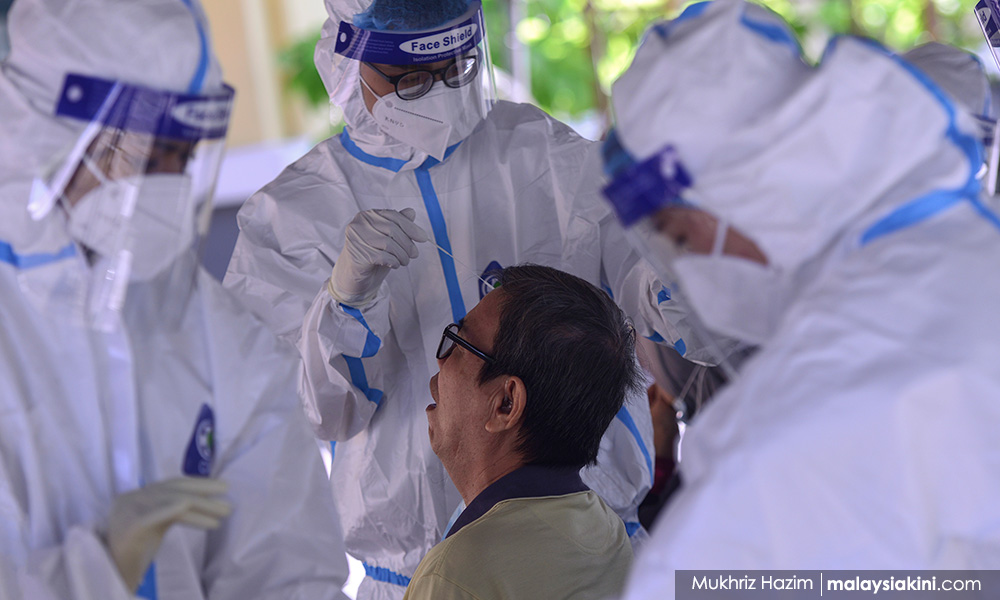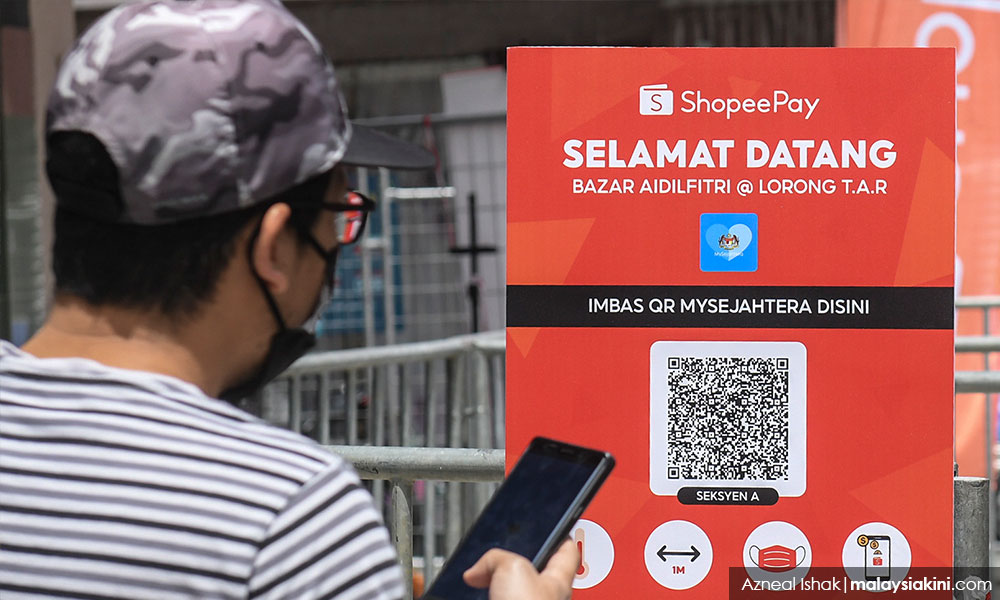COVID-19 | The government is deploying a new warning system to pre-empt potential coronavirus infection clusters at identified locations.
Science, Technology and Innovation Minister Khairy Jamaluddin told a presser today that the Hotspots Identification for Dynamic Engagement (Hide) system will be able to predict whether certain premises or area might turn into a Covid-19 hotspot.
This is done through forward and backward contact tracing propelled by big data analysis and artificial intelligence in the system designed by the government, he said.
"Following the recent spikes in Covid-19 cases, the National Security Council special meeting on May 1 decided to utilise a more integrated early warning system to identify areas, or premises, at risk of becoming a hotspot for Covid-19 infection.
"Hide uses big data analysis and AI (artificial intelligence), and through contact tracing, it can predict possible clusters," he added.
According to Khairy, the government will publish a list of potential hotspots identified by Hide so that the public can make informed decisions, including whether to visit the said premises and to practice extra precautions while there.

It would also allow the owners of the premises to conduct intervention measures, including swab tests, quarantine, sanitising works and tighten control at their points of entry.
"With this, it can prevent more drastic measures from being imposed by the government, such as tighter movement control orders.
"This is to ensure that we can have targeted intervention and pre-emptive measures," he said.
Khairy revealed that the system had already identified 1,660 potential Covid-19 hotspots across the country as of yesterday, an increase from 1,170 locations just last week.
Besides the list of high-risk locations, Hide will also flag individuals who have visited these areas as "casual contacts".
Casual contacts will receive a notification via MySejahtera, and are advised to self-monitor their health and get tested if Covid-19 symptoms appear.
Blindspots
Khairy told reporters that the Hide system would further boost what MySejahtera has achieved so far in contact tracing.
However, more participation of premises' owners is needed to make sure that it can make an accurate analysis.
He said Hide depends on several variables to analyse potential hotspots, including positive Covid-19 cases detected at a location, how long the positive cases had spent there, the size of the space involved, and the type of ventilation used.

"Premises that have yet to register with MySejahtera should do so as soon as possible, as per the government's order. They are required to provide a QR code for visitors to scan.
"We also encourage residential areas and meeting rooms inside buildings to have their respective QR codes, so that we can identify where they had been.
"This would enable a targeted intervention," Khairy added.
Most of the hotspots identified in Kuala Lumpur and Selangor range from shopping malls, food and beverage premises, supermarkets, Ramadan bazaars, and offices.
On privacy issues, Khairy stressed that the reason they wanted residential premises to have QR codes was derived from recent spikes of positive cases that were traced back to social gatherings.
"We only ask you to scan (MySejahtera QR code) when you visit (residential premises). We are not asking you to scan when you go back to your own house.
"This is for social gatherings. Because we found that among the locations where Covid-19 had spread was through social events," he added. - Mkini



No comments:
Post a Comment
Note: Only a member of this blog may post a comment.